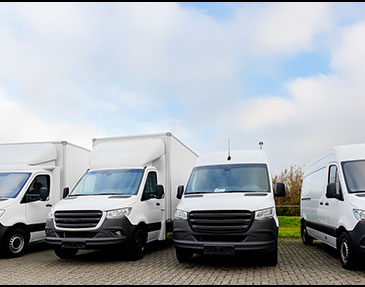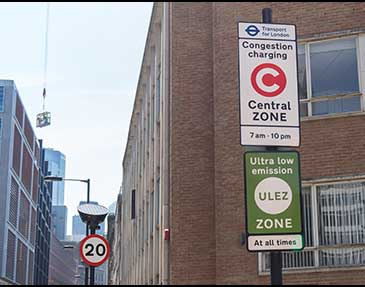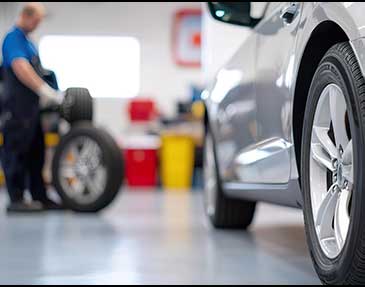When renting a business vehicle long-term, who’s responsible for maintenance?
Renting a vehicle for the long term can be a great choice for businesses. But one question quickly arises: who’s responsible for maintenance work?
There are two sides to this question. First, the regular maintenance that’s needed to keep your car in good working order. And second, any emergency repairs or services that might be needed along the way.
One of the key advantages of renting business vehicles long-term is that you typically get maintenance and regular servicing as part of the contract. However, not all firms have the same policies. That’s why it’s so important for you to enter into the hiring process with your wits about you and relevant questions up your sleeve.
Ultimately, you need to know who’s responsible for what. If you don’t, you could end up paying unexpected charges. Here are five things to find out before you agree to a long-term business vehicle rental.
Does your rental firm provide regular servicing?
A bad rental firm doesn’t care if you have a good experience on the road. They just want your payments coming in. A good one, by contrast, has your driving experience in mind at all times.
One sign of this is whether they offer regular servicing. A reputable firm will tell you when the vehicle next needs servicing and provide you with the details you need to arrange this.
Typically, it’s your responsibility to arrange the service but the service itself is covered by the rental firm. Always check the small print so you know your rights and responsibilities.
Does your rental firm cover unplanned maintenance?
Regular servicing is one thing – but what about unexpected maintenance and repairs? Are they covered by your rental agreement?
A reputable firm will include cover for unplanned maintenance. You should be able to ring them – or the maintenance team they partner with – and get someone to look at the problem ASAP.
Having this in the contract can give you peace of mind, especially if you’re using the vehicle for long journeys or to transport key goods.
As always, read the small print. Rental firms may cover unplanned maintenance but charge for puncture and blowout repair.
As in any transaction, both parties have responsibilities. If you don’t understand your side of the bargain, you won’t be able to uphold it. Make sure you know what charges might be expected in the event of unplanned maintenance.
Does your rental firm provide breakdown cover?
A good rental firm will provide you with breakdown cover. In the event of a breakdown, you should be able to ring the number of your insurance provider and have someone sent out to get you on your way.
As with unplanned maintenance, you should always read the small print. While the rental firm should be responsible for breakdown cover, they may not be responsible for things like the arrival time of the breakdown crew.
Will the rental firm provide a replacement if your vehicle has to be taken off-road?
This is another important thing to consider. In the unfortunate event that your vehicle has to be taken off-road, will the rental firm give you a like-for-like replacement?
It’s important to note that the definition of “like-for-like” may vary from firm to firm. You may not necessarily get the same make and model. But a reputable firm will give you the same type of vehicle so that you can continue to carry out your business as usual.
Will the rental firm keep in contact?
Once you’ve rented your vehicle, you don’t want to be pestered – but you also don’t want to be left alone. For this reason, you should check whether your rental firm will keep in contact with you.
Among other things, occasional but regular calls from your rental firm show that they’re committed to keeping on top of their maintenance obligations. In return, you get the chance to demonstrate that you’re taking care of the vehicle, and to report any minor problems.
What are the advantages of long-term vehicle hire for businesses?
Hiring vehicles can be advantageous for businesses of all kinds. However, it’s especially useful for businesses that don’t yet have the capital to buy vehicles outright.
In this situation, businesses face a choice. They can rent in the short-term or the long-term. Both types of rental can be beneficial, providing you with a vehicle that meets your mileage, driving and insurance requirements (and taking care of troublesome compliance, too). So why go for a long-term rental?
First off, long-term rentals are flexible, making them easy to manage and budget for. You’re rarely locked into a fixed-term contract but can renew your agreement each month. This means that if your situation changes, you’re not in a fix. On top of this, long-term rentals tend to be more cost-effective than short-term ones.
Secondly, long-term rental gives you access to a wider range of vehicles. You can get the exact spec that your company needs rather than settling for something not quite right.
And finally, a good rental firm will include maintenance, servicing and some form of insurance in their agreement. The result? A form of vehicle hire that serves the needs of your business without breaking the bank.
Conclusion
When you rent a business vehicle, you’re entering into a contract with the rental firm. That’s why you need to be sure you understand your rights and responsibilities with regard to maintenance.
At J.D.Robertson & Co Ltd , our priority is to get you on the road and we’re always transparent about our maintenance policy. We don’t hide behind corporate jargon and we don’t read from a script.
So if you’re looking for long-term vehicle rental in the East of England, call 01206 572368 . We’d love to set you up with the right vehicle for your firm.




















